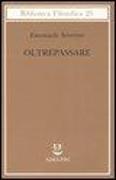- Start
- Classical Myth in Four Films of Alfred Hitchcock
Classical Myth in Four Films of Alfred Hitchcock
Angebote / Angebote:
With an eye towards the classicist, the film scholar, and the general reader interested in these fields, Classical Myth in Four Films of Alfred Hitchcock presents an original study of Alfred Hitchcock by considering how his classics-informed London upbringing marks some of his films. The Catholic and Irish-English Hitchcock (1899-1980) was born to a mercantile family and attended a Jesuit college preparatory, whose curriculum featured Latin and classical humanities. An important expression of Edwardian culture at-large was an appreciation for classical ideas, texts, images, and myth. Hitchcock s films convey mythical themes, patterns, and symbols, though they do not overtly reference them. Hitchcock is a modernist who used myth in unconscious ways as he sought to tell effective stories in the film medium, an aspect that may speak to his popularity. This book treats four representative films, each from a different decade of his early career. The first two movies were produced in London: The Farmer s Wife (1928) and The Man Who Knew Too Much (1934), the second two in Hollywood: Rebecca (1940), and Strangers on a Train (1951). Myths and literary texts discussed in close readings of these movies include the Judgement of Paris, The Homeric Hymn to Demeter, Aristophanes Frogs, Apuleius tale Cupid and Psyche, Homer s Odyssey, and the Homeric Hymn to Hermes. Many Olympian deities and heroes are discussed for their archetypal resonances. The Introduction presents a new reading of Hitchcock s circumstances as he entered film work in 1920, and theorizes why and how the films may be viewed as an expression of the classical tradition and of classical reception.
Folgt in ca. 15 Arbeitstagen

